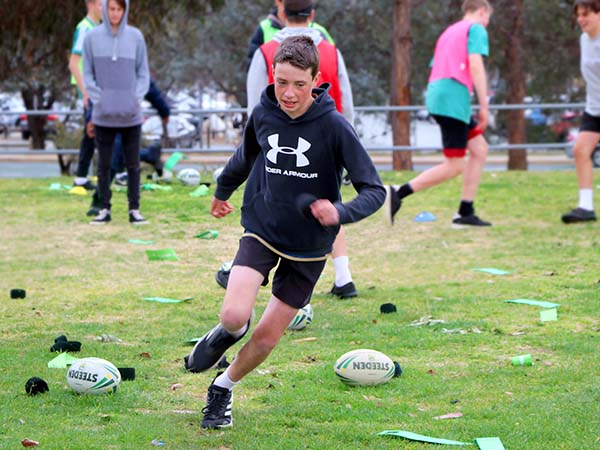12 Sep 2019
Learning through Health and Physical Education

Alfred Deakin High School student Joe Harpley taking place in his school’s National Health & Physical Education Day activities today.
Health and physical education in school plays a vital role in teaching our young people the skills to engage in physical activity and become healthy, active adults.
In 2017-18, the Australian Bureau of Statistics’ National Health Survey showed that almost one quarter (24.9%) of children aged 5-17 years were overweight or obese1.
Educators are striving to address this through curriculum that is engaging, contemporary and developmentally appropriate.
Students learn through movement as well as the subject knowledge and strategies that enable them to engage in a range of sports and activities.
Just like a student learns the skills required to write a sentence and construct an essay, they learn movement skills and concepts to participate in a range of physical activities.
Through the acquisition of these skills, they then gain confidence in their body, and an understanding of how it moves and responds.
Beyond that, they gain invaluable life skills in teamwork, leadership, perseverance and resilience.
In Health and Physical Education, students develop the knowledge, understanding and skills to support them to be resilient, to develop a strong sense of self, to build and maintain satisfying relationships, to make health-enhancing decisions in relation to their health and physical activity participation, and to develop health literacy competencies in order to enhance their own and others’ health and wellbeing.
21st century learning in Health and Physical Education is far broader than sport as students explore a range of subjects that support their health and wellbeing.
In the younger years, health education helps students to develop personal and social skills such as cooperation, decision-making, problem-solving and persistence in movement settings.
For older students, this subject allows students to explore more complex issues around relationship development, decision making and mental health.
This is important, given that one in seven young people aged 4 to 17 years of age experience a mental health condition in any given year2.
Today is National Health & Physical Education (HPE) Day. This is an initiative of the Australian Council for Health and Physical Education and Recreation (ACHPER), designed to highlight the importance of the curriculum area, and its influence on student learning and personal development.
